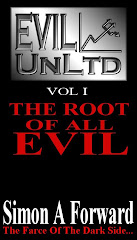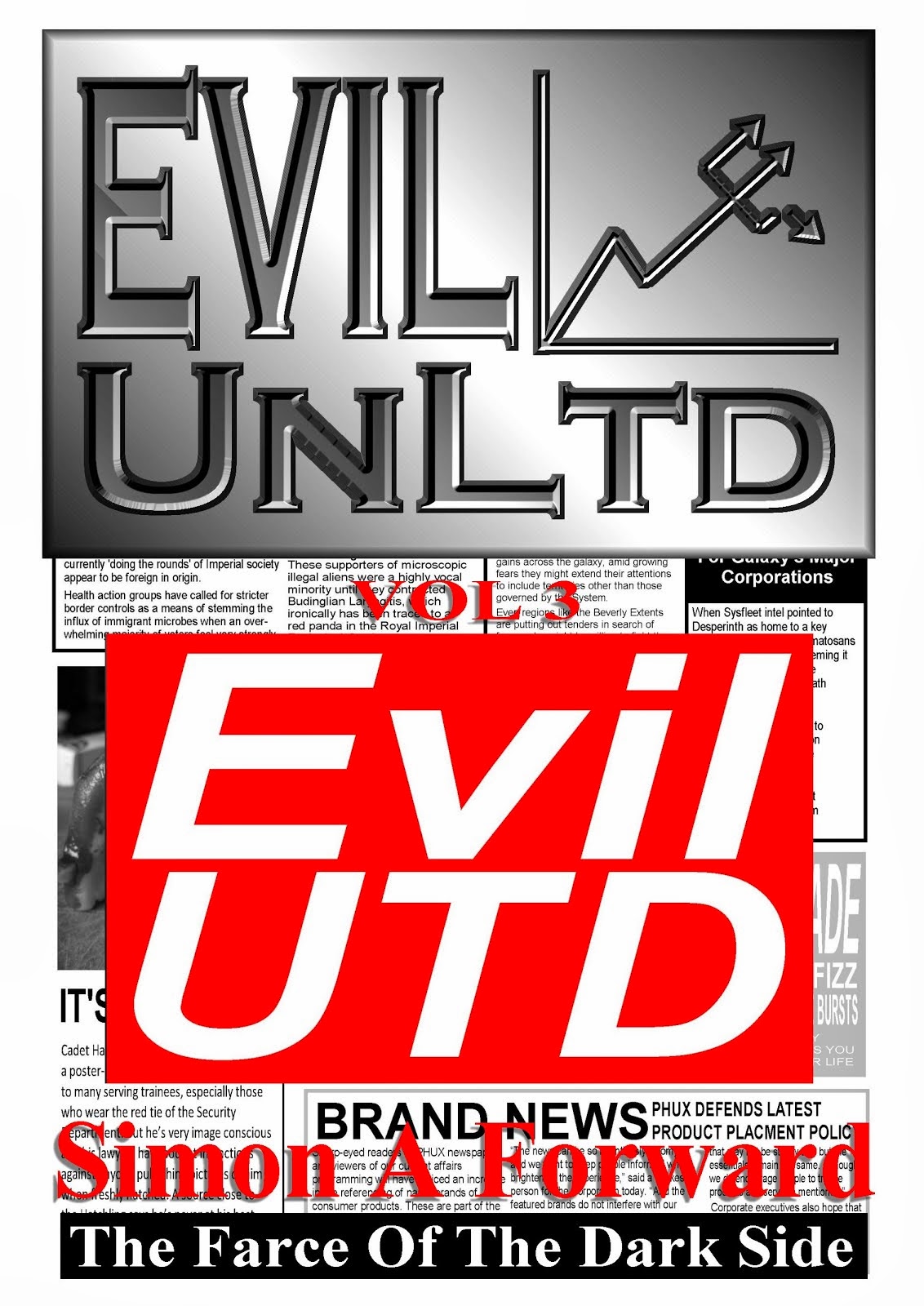 Before Enterprise made some interesting musical choices to accompany its 'special' brand of science fiction, there was another pioneering series with a theme you could sing to - if you felt inclined. Before Life On Mars, there was a show exploring the world of policing in a different time - in this case, the future - telling stories of ordinary, everyday crime and law enforcement on a new frontier, in the light of a big blue-green lamp known as Earth.
Before Enterprise made some interesting musical choices to accompany its 'special' brand of science fiction, there was another pioneering series with a theme you could sing to - if you felt inclined. Before Life On Mars, there was a show exploring the world of policing in a different time - in this case, the future - telling stories of ordinary, everyday crime and law enforcement on a new frontier, in the light of a big blue-green lamp known as Earth.Yes, I speak of Star Cops.
For once, I'd like to be able to talk about a show without having to mention Doctor Who, but I'm not going to be able to do that on this occasion - largely because Star Cops was the creation of Chris Boucher, the man who gave us Leela. Okay, Louise Jameson had something to do with that too. Star Cops has no leather-clad savages, however - and, actually (if I can take a brief dip in entirely shallow waters), seems to steer deliberately clear of presenting us with any attractive females whatsoever. Beauty is, of course, in the eye of the beholder, but the absence of any objects of lust for the heterosexual male) in a science fiction series of its day (1987) is noteworthy. I'm being (as well as shallow) facetious, of course, but it feels like part of the essential distinction the series is making: this is not science fiction.
At least, it's not sci-fi of the fantasy breed, like Doctor Who with its long string of attractive female companions to keep the teenage lads watching long after they've grown out of it. (And quite right too.) Despite its discernible Who pedigree - Chris Boucher (who also worked on Blake's 7 and presumably that's why he accessorises his hero with an early prototype Orac, named Box), series creator, is joined in the writing credits by Philip Martin (Vengeance On Varos) and Graeme Harper (Caves Of Androzani) takes the directing helm for four episodes - you can sense this putting as much distance between itself and 'that sort of show' as it can. And maybe this was back when TV science fiction was viewed as a bad thing.
In that context, the series scores huge points for doing what it does. Although space is very much a backdrop and efforts are taken - after 'hero' Nathan Spring's initial baptism in vacuum and vomit - to characterise it all as routine - almost mundane - it simultaneously builds a neat sci fi concept into each of its nine (there were only nine episodes all told) mysteries. And although one or two of those mysteries emerge as sub-Bergerac (notably the Philip Martin episode, This Case To Be Opened In A Million Years, which comes across as incredibly weak next to the episodes that precede it), usually it works a charm.
I say 'charm', but charm, like the 'babe factor', is - another thing that separates it from Doctor Who - just not part of the series' approach. It wants to be a bit hard - not The Sweeney hard, of course, because it envisages a more pc future than that (well, to some extent, but we'll get to that) - and it manages a certain edginess, only let down by some deficiencies in the acting department.
David Calder as Nathan Spring is sour and cynical and appears on the surface to have few redeeming qualities, but you end up liking him because he's really very good. But after him, we're obliged to move down the list as we're introduced to each member of the Star Cops staff: Trevor Cooper is dependable and entertaining as seasoned dough-boy Brit-cop, Colin Devis; Linda Newton is variable as Pal Kenzie, Aussie WPC from the seedier side of Ramsey Street; Erick Ray Evans is, presumably, the best American they could afford as David Theroux; Sayo Inaba is rather pitiful as meek Japanese medical examiner Anna Shoun.
Still, therein lies half of the series' concerted efforts to paint the brand new Space Age as an international arena and it's sadly more successful in that regard than the other prong of that campaign: namely, an apparent game of Spot This Week's National Stereotype played from episode to episode. A good number of the stories, even the stronger ones, seem to concern themselves with one key nationality and it's a little unfortunate that you get a sequence that goes something like: Russians are spies, Americans are paranoid, Italians are Mafia, Arabs are fanatics. Now, to be fair, in the case of the Arabs, they made the powerful influential Arab a woman and she is the victim who has her unborn children (well, embryos) 'kidnapped'. But her response is to abduct the brother (well, clone) of the perpetrator and threaten to cut off his hand, partly because the man is a pianist and partly because that is, of course, what Arabs do.
It's unfortunate elements like that which, more than the fx, date the series and demote it to a rank somewhat lower than it would otherwise deserve. It's a shame, because the fx are - apart from a few dubious attempts to convince us of weightlessness (in which the glimpse of a string might persuade you you've switched over to some Gerry Anderson production, but is by no means the worst offence) - generally pretty good for the time and budget and sometimes stunning. (Examples of the stunning fx would *not* include a moon buggy, which a) they're obviously fond of b) is clearly a model and c) is rendered even more model-like and vaguely comical by the - again, curious - choice of music selected to accompany its rovings across the lunar landscape.) Add to that the fact that, occasionally, the stories show glimmers of being ahead of their time and even prophetic (intelligent listening systems, terrorists and (space) plane hijacks in Intelligent Listening For Beginners) and it's even more disappointing when you encounter elements that belong in the past (the Cold War still very much alive) and that, as a result, undermine much of what's been done to paint a convincing vision of the near-ish future.
All in all then, this is one I'd recommend for a watch - or rewatch - not only because there are only nine episodes, but because there's something worthy to be had from the experience and, for the moment, I can't think of another show that has made anything like such a brave foray into this area. (And no, Space Precinct doesn't count.) Again, it's down to a leap of imagination, but a similar attempt made today - with a similar degree of courage on the part of the producers, along with a more mature, contemporary approach to the realities of life on Earth as well as life 'out there' - could furnish us with something remarkable. On the other hand, people who like cop shows prefer to take their detective mysteries seriously, and once you transfer the action to a space station or the Moon, that makes it impossible for some - and you'd get a series that would probably only last for nine episodes or so. Possibly, that's what happened with Star Cops.
But short and sweet though it was, I can guarantee you, if you watch it on DVD within a short space of time, you will have its theme song firmly lodged in your brain.
It's actually nowhere near as bland as the Enterprise theme and it's by Justin Hayward, an actual somebody, and it's even pleasant - if a touch incongruous - the first time you hear it. Approach with caution, all the same.






